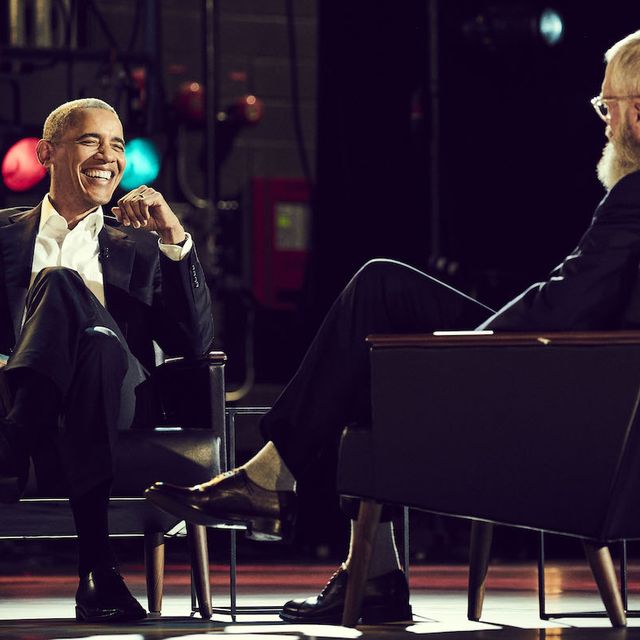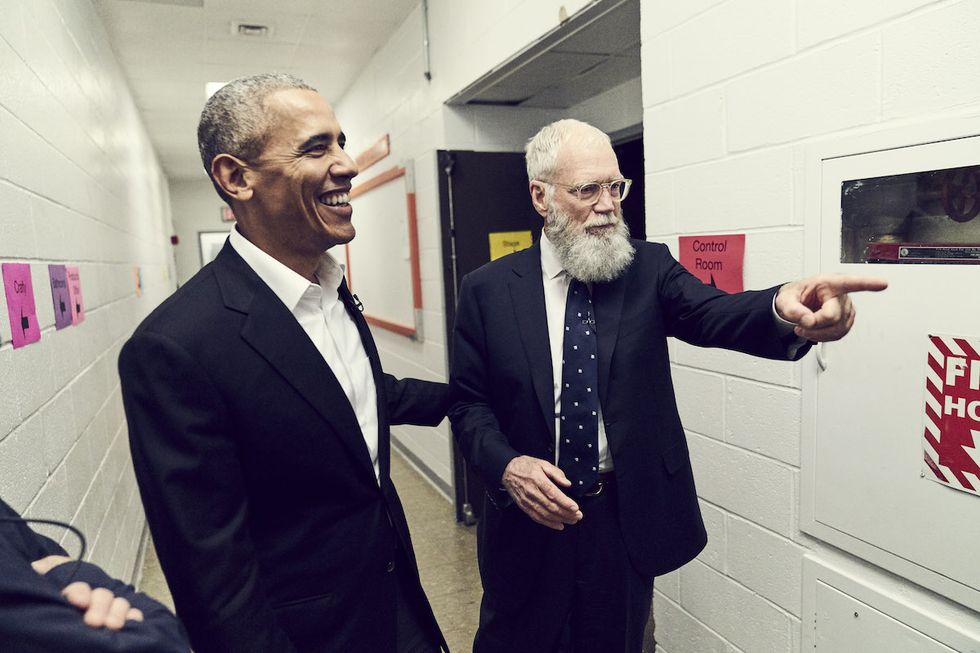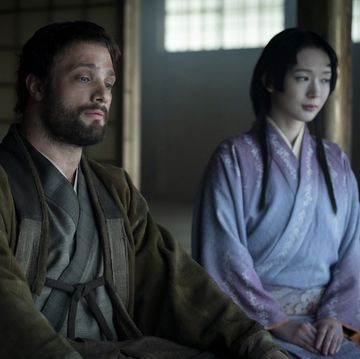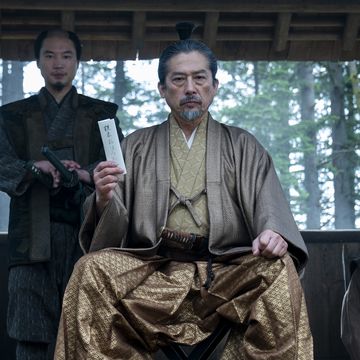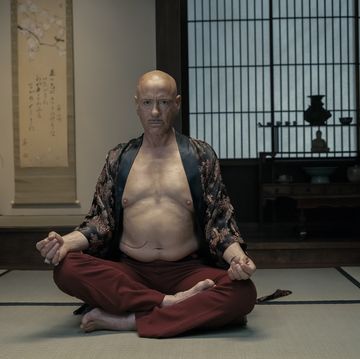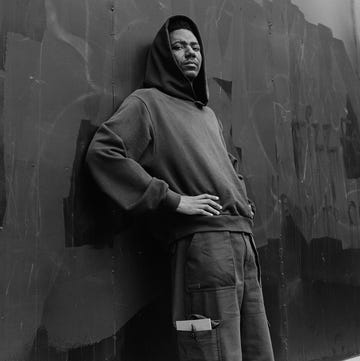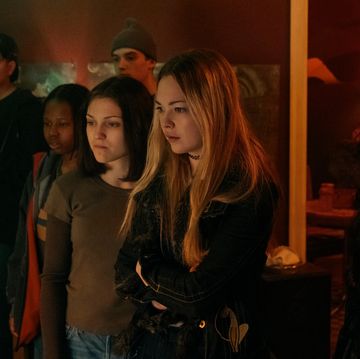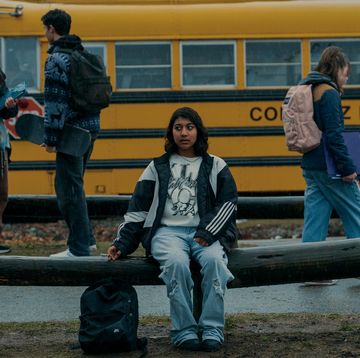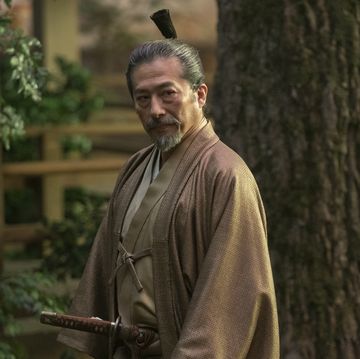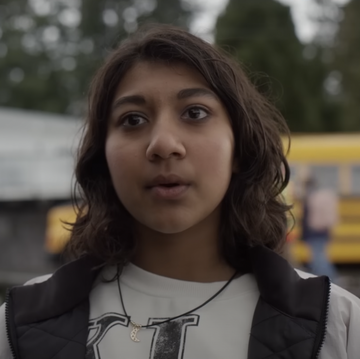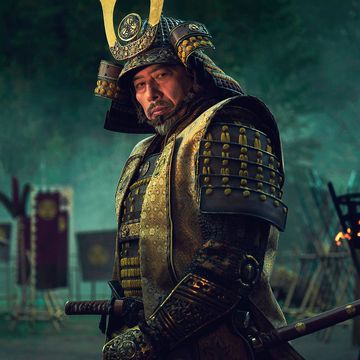For most of his retirement, when he emerged back into the public spotlight, David Letterman's beard has been a running gag. Long and scraggly and glorious, it was like the late night icon had evolved into an old recluse in the woods. It's a joke that required no words, one that he could tell in his retirement through paparazzi photos or the occasional public appearance.
But now Letterman is back, officially. Today marks his return to TV (well, sort of) with the debut of his new Netflix series, My Next Guest Needs No Introduction with David Letterman. And if the beard is any indication, this is not the same man who graced your home every weeknight for more than three decades. What's interesting, however, is even though the beard might suggest Letterman is in a gives-no-fucks stage of his career, this show is far more mature, more relaxed, and at many times more touching than his previous one.
Letterman's first guest is Barack Obama, who comes out after a disappointingly short opening monologue from Letterman. If you thought this would be Letterman telling jokes for a while, you're unfortunately wrong. This is closer to a lighthearted 60 minutes interview than anything else. There's no band. There's no top 10 list. This is just Letterman, an audience, and his guest.
The entire segment is framed around two icons who are now on the other side of the peak in their respective careers. “The stereotype of former presidents is that you’re sitting around your house, waiting for someone to call,” Obama says near the beginning of his first talkshow appearance since leaving office a year ago. “[That we’re] lonely …”
“No, that’s me,” Letterman interjects.
But this is an interview that spans these men's personal lives. Obama discusses his life since leaving office, his children, his relationship with his wife. They also get into some nuanced political talk, something Letterman would generally avoid in his old show. And even though they never mention Trump by name, the two delve into some surprisingly academic political analysis. At one point Letterman asks: “What is more damaging to that democracy? Would it be the diminishment, by the head of democracy, of press? Or would it be somebody screwing around with the actual voting process?”
To which Obama responds: “One of the biggest challenges we have to our democracy is the degree to which we don’t share a common baseline of facts ... If you watch Fox News, you are living on a different planet than you are if you listen to NPR.”
He mentions how his campaign for president was a grassroots movement of young people who utilized social media to spread his message. But in 2016, he admits, special interests, corporations, and foreign entities used social media to influence the election. “At a certain point, you just live in a bubble, and that’s part of why our politics is so polarized right now.”
With Martin Luther King Jr. Day on Monday, the two also delve into the Civil Rights Movement, which inspired Obama to go into public service. In a pre-recorded segment, Letterman walks Alabama’s Edmund Pettus Bridge in Selma with civil rights icon and U.S. representative John Lewis, retracing the landmark 1965 march to Montgomery to demand equal voting rights. It's a moment that Lewis says directly led to Obama becoming the first African American president. And when Letterman asks Obama about this, the 44th president responds:
The long view on human history: It turns out we come up with all kinds of reasons to try to put ourselves over other people. Racism is a profound example of that, but obviously, biologically, there’s no actual reality to it other than we made this thing up. Over time, what happens is, because it manifests itself in very concrete ways—slavery, Jim Crow, subjugation—it becomes a social reality and it ends up having very real impacts. It is true that African Americans on average are poorer than other Americans. It’s not because of their race, it’s because of the social constructs over the course of 300 to 400 years that made them poor.
It's a concise and eloquent examination of a blight on hundreds of years of human history, delivered in the way that only a statesmen like Obama can.
This isn't a stand-up special. It's not a late-night talk show. Letterman's new show is something deeper, more valuable. And, if anything, it'll certainly make you miss these two guys in their old jobs.
